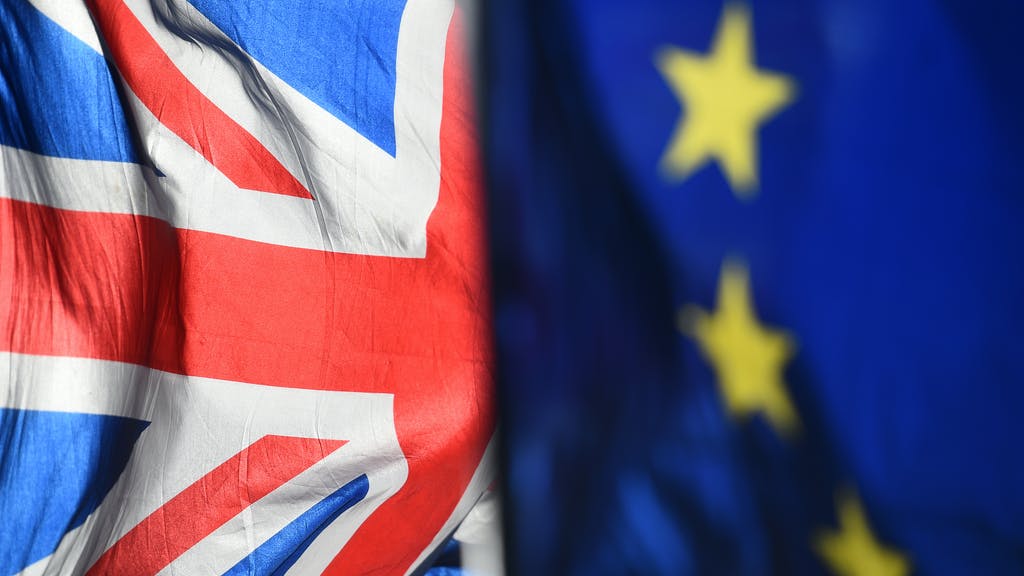Brexit Trade Deal Expected Despite Late ‘Hitch’ In Negotiations

Negotiations on a UK-European Union trade deal are continuing amid widespread expectation an agreement is imminent.
Talks in Brussels were focused on the details of fishing rights but both sides have indicated a Christmas Eve deal will be announced, bringing an end to months of wrangling just a week before current trading arrangements expire.
Boris Johnson has been in close contact with European Commission president Ursula von der Leyen in recent days as top-level efforts intensified to get a deal over the line.
The pair were expected to use a call on Christmas Eve to agree the deal.
The EU and Downing Street were poised to announce a deal on Wednesday night but that slipped as last-minute wrangling continued.
Negotiations continued through the night, fuelled by a late delivery of pizzas.
On Thursday morning a UK source said “they’re still going on fish” – the issue which has been one of the major stumbling blocks in the path to a deal.
Irish foreign minister Simon Coveney told RTE Radio there had been “some sort of last-minute hitch” over the small print of the fisheries agreement but deal was still expected later.
Reports have suggested the UK has offered a deal where it will take back the right to land 25% of what the EU currently takes from British waters, phased in over five-and-a-half years.
As the battle to spin the situation began, French sources reportedly claimed the UK had made “huge concessions”, especially on fisheries – a symbolically important issue on both sides of the Channel.
A deal covering the UK-EU trading relationship worth almost £670 billion will come as a relief to business leaders.
If, as expected, it provides for trade free from tariffs and quotas the economic shock of breaking away from the EU’s single market and customs union will be softened.
But there will be an increase in bureaucracy as a result of leaving the EU’s trading regime.
The Office for Budget Responsibility had forecast that a no-deal Brexit could wipe 2% off gross domestic product – a measure of the size of the economy – in 2021, adding to the damage to jobs and livelihoods already caused by coronavirus.
If a trade deal is announced between the UK and the EU, the European Research Group will reconvene its Star Chamber to scrutinise and deliver an opinion on it.
— David Jones (@DavidJonesMP) December 23, 2020
But the details of the deal – expected to be around 2,000 pages long – will be closely scrutinised to see where either side has compromised.
Any deal Mr Johnson secures is likely to pass through Parliament with Labour expected not to oppose it – Sir Keir Starmer has stressed that an agreement with the EU would be in the national interest.
Hilary Benn, the Labour chairman of the Commons Future Relationship with the EU Committee, told the BBC he had “no doubt” Parliament would back it because “the alternative is no-deal and that really doesn’t bear contemplation”.
But in a sign of the political difficulties Mr Johnson may face, the European Research Group (ERG) of hardline pro-Brexit Tory MPs said they would scrutinise any deal in great detail.
Pizza has arrived…Is it Frutti di mare ?Or Bismarck ?Or good old 4 stagione ?Suspense… pic.twitter.com/UPbK2iwgLU
— Eric Mamer (@MamerEric) December 23, 2020
The ERG said it would reconvene its so-called “star chamber” of legal experts to examine the text.
A statement issued by the group on Wednesday said: “Given that the new agreement is also highly complex, the star chamber will scrutinise it in detail, to ensure that its provisions genuinely protect the sovereignty of the United Kingdom after we exit the transition period at the end of this year.”
But it is not only hardcore Eurosceptics who could be critical of a deal.
Lord Barwell, Theresa May’s former chief of staff, said “the truth is the deal means the introduction of significant barriers to free trade” through customs and regulatory checks.
But he acknowledged “it is better than no deal and we could certainly do with some good news”.
The truth is the deal means the introduction of significant barriers to free trade e.g. customs and regulatory checks (but it is better than no deal and we could certainly do with some good news atm) https://t.co/9MUMkPXvTc
— Gavin Barwell (@GavinBarwell) December 23, 2020
If a deal is agreed it would have to be backed by the EU’s 27 member states.
MPs and peers would be recalled from their Christmas break to vote on a deal next week, but the European Parliament has said they will not have time to ratify a deal before January 1 – meaning any agreement is likely to be provisional.




